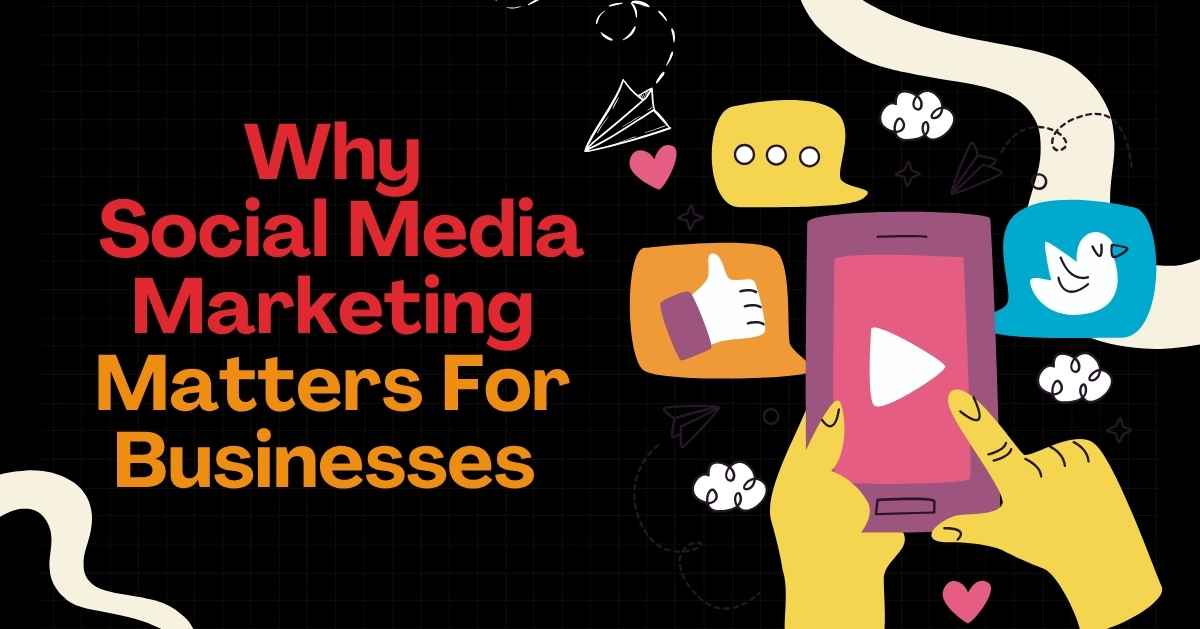Marketing has transformed drastically in the last decade. Customers no longer rely solely on print ads, TV commercials, or billboards to discover brands—they actively engage with businesses online. Social media marketing for business has become one of the most powerful strategies to build visibility, nurture trust, and drive sales.
Among all platforms, Facebook continues to play a unique role. While brands now spread across Instagram, LinkedIn, TikTok, and others, Facebook remains a strong foundation that supports targeting, engagement, and conversions. To understand why, let’s explore social media marketing in depth—and highlight how Facebook’s features make it a pillar of success.
Why Social Media Marketing is Essential for Businesses
1. Building Brand Awareness Across Touchpoints
Social media puts your business in front of the right audience multiple times a day. From casual scrolling on Instagram to professional networking on LinkedIn, every platform acts as a brand touchpoint. This repeated exposure increases recognition and builds credibility.
2. Meeting Customers Where They Are
Today’s consumers spend hours daily on social media. Whether they’re researching products, reading reviews, or engaging with communities, businesses that show up in these spaces earn more attention and trust. Not being present means leaving opportunities for competitors.
3. Affordable Marketing with Measurable Results
Unlike traditional media, social media marketing is budget-friendly. Even small businesses can launch campaigns with modest spends, analyze real-time results, and scale what works. Every rupee can be tracked against impressions, clicks, and conversions—ensuring accountability.
4. Driving Meaningful Engagement
Social platforms are interactive by nature. Businesses can ask questions, reply to comments, run polls, and host live sessions. This two-way dialogue makes customers feel heard and valued, leading to stronger long-term relationships.
5. Supporting SEO and Website Growth
While social signals don’t directly boost search rankings, they play an indirect role. A strong social presence drives more traffic to your website, encourages backlinks, and strengthens brand mentions—factors that positively influence SEO over time.
Where Facebook Fits Into the Bigger Picture
While all platforms have their strengths, Facebook adds unmatched depth to social media marketing. Here’s why:
1. Enormous Global Reach
With billions of active users, Facebook ensures businesses—from local shops to global brands—can connect with diverse audiences. For many, Facebook is still the first touchpoint with potential customers.
2. Precision Targeting & Retargeting
Facebook’s targeting tools are among the most advanced. Businesses can filter audiences by age, interests, behaviors, or even specific life events. Retargeting ensures you re-engage users who visited your website or interacted with your brand but didn’t convert.
3. Variety of Ad Formats for Every Goal
From carousel ads showcasing multiple products to lead-generation forms that capture customer data instantly, Facebook ads fit every stage of the sales funnel. This adaptability allows businesses to tell stories creatively while driving results.
4. Cost-Effective Scaling
Facebook ads can start at low budgets, making them accessible for small businesses. As campaigns prove successful, budgets can be scaled, ensuring you invest more only where you see returns.
5. Rich Analytics & Optimization
Through Facebook Ads Manager and Pixel tracking, businesses get a clear picture of campaign performance. This data-driven approach allows real-time optimization—adjusting creatives, audiences, and budgets for the best ROI.
6. Building Communities and Trust
Facebook Pages and Groups go beyond ads. They create spaces where customers engage with your brand story, share feedback, and even become advocates. For businesses, this community-building is invaluable.
Social Media Strategy: Facebook as a Strong Pillar
A well-rounded social media marketing strategy doesn’t rely on a single platform. Instagram may be stronger for visuals, LinkedIn for B2B, and TikTok for trends—but Facebook ties these efforts together. Its combination of reach, targeting, advertising, and community engagement makes it a central hub that complements other channels.
For example:
- A fashion brand might run Instagram Reels for awareness but use Facebook ads to drive purchases.
- A B2B service may publish thought-leadership on LinkedIn but use Facebook retargeting to convert website visitors into leads.
- A local restaurant could post daily updates on Instagram Stories but use Facebook Events to attract walk-in customers.
In each case, Facebook provides a conversion-focused backbone to broader social strategies.
Best Practices for Social Media Marketing with Facebook
- Define Clear Objectives: Awareness, leads, or sales—align campaigns with business goals.
- Understand Your Audience: Create personas and use analytics to refine targeting.
- Prioritize Quality Content: Post regularly, but ensure each piece adds value.
- Leverage Video: Short videos and Facebook Lives often drive higher engagement.
- Retarget Smartly: Don’t overdo ads; show personalized offers to interested users.
- Engage Authentically: Respond to comments and DMs; humanize your brand.
- Test & Optimize: Continuously run A/B tests on creatives, CTAs, and audience segments.
Final Thoughts
Social media marketing for business is no longer optional—it’s essential. It builds awareness, nurtures customer trust, and drives measurable growth. Among all platforms, Facebook continues to be a cornerstone because of its wide reach, advanced targeting, versatile ad formats, and strong community-building features.
The smartest strategy is not to view Facebook marketing benefits in isolation but to see them as part of a larger social media ecosystem. When combined thoughtfully with other platforms, Facebook strengthens campaigns, boosts ROI, and ensures your business stays visible in an ever-competitive digital landscape.

